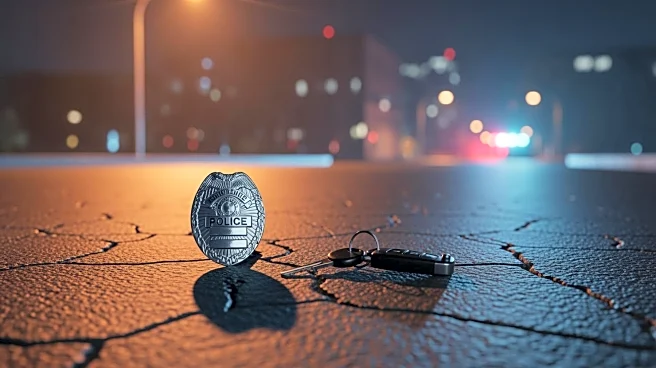What's Happening?
Troy Milne, a 61-year-old diabetic camper from Cockatoo, Australia, was found alive after being missing for nine days. Milne had gone missing after leaving his campsite at Woodside Beach for a short supply
trip. His vehicle became undrivable after bottoming out on the terrain, leading him to light a fire to attract emergency services. The extensive search involved Victoria Police, the Department of Energy, Environment & Climate Action, and the State Emergency Service. Milne was found near his Jeep Wrangler by Forest Fire Management Victoria staff after reports of a fire near Kirby Cross Track. He was without his medication for a long period, which left him disoriented and confused.
Why It's Important?
The successful rescue of Troy Milne highlights the importance of coordinated search and rescue operations in remote areas. It underscores the challenges faced by individuals with medical conditions when stranded without necessary medication. The incident also emphasizes the role of emergency services and community efforts in ensuring public safety. Milne's case serves as a reminder of the potential dangers of outdoor activities for individuals with health conditions and the need for preparedness and communication with emergency services.
What's Next?
Following his rescue, Troy Milne was taken to a hospital for treatment and observation. The incident may prompt discussions on improving safety measures for campers, particularly those with medical conditions. Authorities might consider reviewing protocols for search and rescue operations in remote areas to enhance efficiency and effectiveness. Milne's experience could lead to increased awareness and education on the importance of carrying sufficient supplies and communication devices during outdoor activities.
Beyond the Headlines
The incident raises questions about the accessibility of medical care and emergency services in remote areas. It highlights the need for better infrastructure and support systems for individuals with health conditions engaging in outdoor activities. The case may also lead to discussions on the ethical responsibilities of emergency services in prioritizing rescues based on medical needs.








